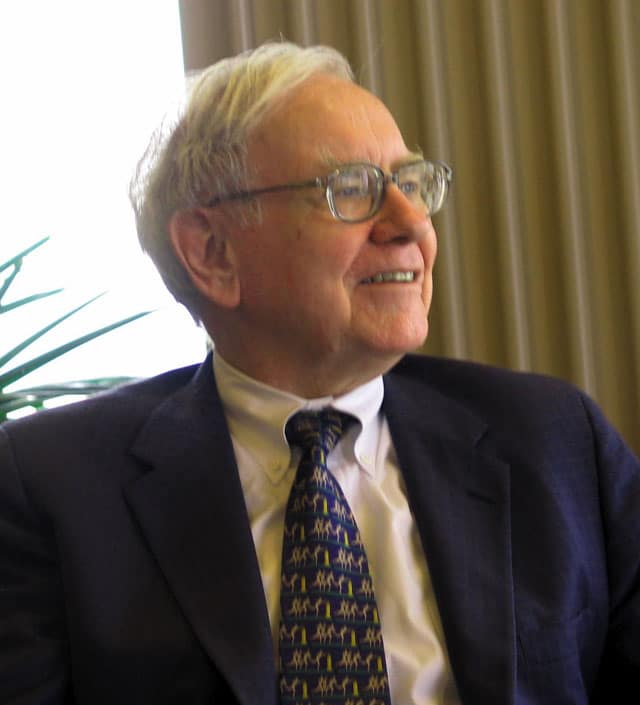Laurence D. Fink built BlackRock into the world’s largest asset manager with a steely grip, a thick skin and a cleareyed vision of what the company could become.
Today, it’s a caretaker of $10.5 trillion of investor money and a provider of sophisticated trading technology, and Fink has been an informal financial adviser to many governments, including the United States. Along the way, he has withstood criticism from lawmakers on both sides — and even independent presidential candidate Robert F. Kennedy Jr. — about BlackRock’s policies and politics.
He has also earned the adulation of its shareholders.
But Fink’s age — he is 71 — and BlackRock’s enormous size, which makes it ever harder to find new assets to manage, are clouds on the horizon. They were on investors’ minds this at BlackRock’s annual shareholder meeting on May 15, as they listened to Fink talk about the company’s performance and voted on ballot issues.
One of the greatest concerns is succession. Fink, BlackRock’s CEO and chair, exerts an unusual level of control for someone leading a firm of its size, with nearly 20,000 employees. From writing LinkedIn posts defending BlackRock’s policies to personally finding key deals, he has put his stamp all over the company, which he cofounded in 1988.
Because of Fink’s all-in approach, the question of who will take over from him has become important, despite a deep bench of talent and several potential successors. It has become even more pertinent because some shareholders are unsure about how much growth BlackRock has ahead of it.
“It’s really hard for anyone to argue that Larry hasn’t done a great job with the company,” said Craig Siegenthaler, an analyst at Bank of America who covers BlackRock. “They’ve outperformed the industry and grown a lot over every single time period.” But Siegenthaler added that the “Larry Fink question” was a key one.
Asked about the concerns, BlackRock pointed to past public statements on the matter. At last year’s shareholder meeting, for example, Fink said, “BlackRock’s board and I have no higher priority than developing the next generational leaders.”
Since the beginning of 2023, BlackRock has added $365 billion in new assets, and the market value of its assets has increased by more than $1 trillion. Although its results have been buoyed by a bull market — the S&P 500 stock index has risen about 38% over the same term — investors have handsomely rewarded the company’s performance. Shares of BlackRock, which has a market capitalization of about $120 billion, have risen roughly 14%.
BlackRock has kept growing even as several state pension funds, largely in states with Republican-controlled legislatures, have said they would pull money from it because of Fink’s comments and writings urging corporations to consider environmental, social and governance, or ESG, goals in their work. In March, the Texas Permanent School Fund said it would withdraw $8.5 billion.
Fink has stepped away from such statements in the past year; at a conference in 2023, he said he had stopped using the term ESG because politicians had “weaponized” it.
BlackRock has gotten more “tactical in their messaging,” said Christopher Allen, an analyst at Citigroup. “It’s been more subdued.”
Still, in a Republican presidential primary debate in December, Vivek Ramaswamy called Fink “the king of the woke industrial complex, the ESG movement.”
BlackRock’s core business is managing money for clients — both big institutions and individuals. It is the world’s largest provider of low-cost index funds through its iShares platform, after its 2009 purchase of Barclays Global Investors for $13.5 billion.
Additionally, BlackRock’s technology platform, Aladdin, provides trading and risk-measurement services for financial portfolios, not only to BlackRock clients but also to rivals like Vanguard and State Street and other major companies.
“Being big is hard on some level,” Siegenthaler said. All asset managers see clients withdraw money, but because BlackRock is so large, not only does it need to replenish assets but it must do so far in excess of what was withdrawn, he said.
BlackRock has consistently said its assets represent only a small fraction, or about 4%, of the roughly $230 trillion in the world’s investable assets. The company has also said it can keep expanding because of its business mix. Vanguard and State Street, its two closest competitors, manage roughly $9 trillion and $4 trillion.
In January, BlackRock announced plans to buy Global Infrastructure Partners for about $12.5 billion, which would be its largest acquisition since the Barclays deal. The deal would allow BlackRock to expand into what it sees as a big area of growth: infrastructure investing. The target company is one of the largest global financiers of building or rebuilding airports, bridges, tunnels and even green energy projects.
The Global Infrastructure Partners deal is also an example of how closely Fink drives BlackRock’s business, using his deep network from a decadeslong Wall Street career and even scouting for merger targets and negotiating transactions personally, according to two people with knowledge of the deal who were not authorized to speak publicly. They pointed to the fact that Fink had worked with the CEO and chair of Global Infrastructure Partners, Bayo Ogunlesi, at investment bank First Boston before founding BlackRock.
“BlackRock is a one-man show,” said Giuseppe Bivona, a co-founder and co-chief investment officer of Bluebell Capital, a small London-based activist investor. Bivona’s firm has agitated for change at BlackRock, questioning both the large size of its 17-member governing board and Fink’s close ties to the firm’s directors. At the annual meeting, BlackRock shareholders voted down a Bluebell proposal that called for Fink to step away from the chair role.
To assuage shareholders, BlackRock has regularly highlighted the rest of its senior executives. Fink, who said he would step down as CEO and chair in a few years, has said that there’s no clear successor but that several executives could step into his seats. BlackRock’s president, Rob Kapito, a co-founder who runs the firm with Fink, is 67.
The speculation is so rampant that current and former BlackRock employees have betting pools with wagers on Fink’s potential replacements. Two senior executives — Rob Goldstein and Mark Wiedman — are considered the most likely successors.
Goldstein, chief operating officer, oversaw the growth of Aladdin. Wiedman, head of the global client business, was known for building out the company’s iShares business. Both command wide leads in those pools.
Fink and BlackRock’s board members have also discussed two other executives — Martin Small, chief financial officer, and Rachel Lord, head of international — as possible successors, a person close to BlackRock said. In the past two years, the company announced expanded roles for both Small and Lord.
At least one potential successor to Fink recently left. Salim Ramji, who was global head of iShares and index investments, was appointed this past week as the next CEO of Vanguard.
c.2024 The New York Times Company. This article originally appeared in The New York Times.







